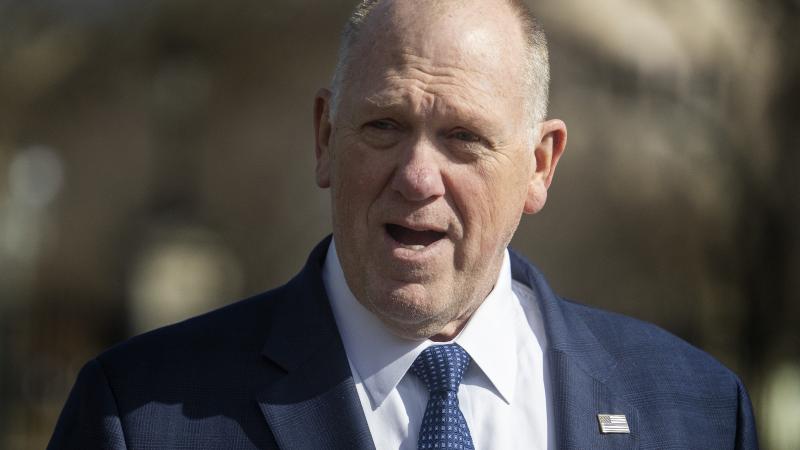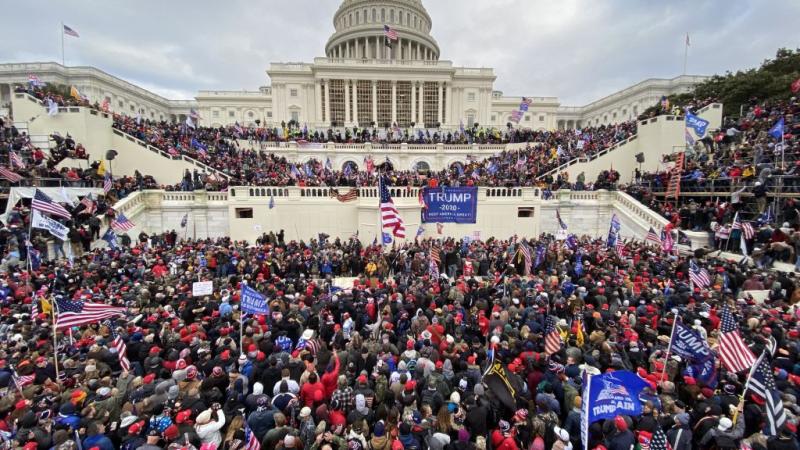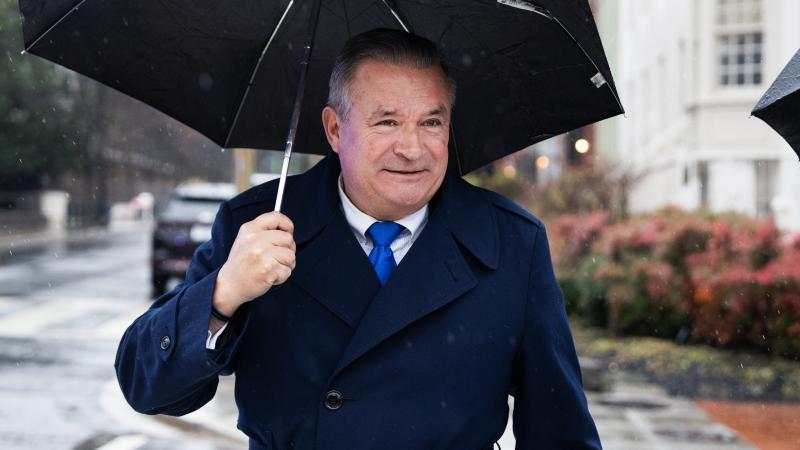Joe Biden, the failed Russian reset and the Obama-era giveaways to Vladimir Putin
Adapted excerpt from Chapter 1 of "Fallout: Nuclear Bribes, Russian Spies and the Washington Lies that Enriched the Clinton and Biden Dynasties."
In February 2009, Vice President Joe Biden was the first to proclaim the administration's desire to "press the reset button" with Russia. Obama National Security Council (NSC) adviser Michael McFaul (who later served as Obama's Ambassador to Russia) was the architect of the policy, and Hillary Clinton, as the new Secretary of State, was named to quarterback the reset.
Clinton infamously pressed a literal red button in a March 2009 meeting with Putin's chief diplomat, Sergey Lavrov. The PR stunt made headlines when Lavrov informed Clinton that she "got it wrong" and used the incorrect Russian word on the "reset" label (McFaul was apparently to blame for the shoddy translation).
Over the next three years, Team Obama pursued policies designed to prop up the Russian economy. They facilitated the creation of a Silicon Valley-like city called the Skolkovo Innovation Center. They approved the sale of Uranium One to the Russians. And they replaced the Megatons to Megawatts program with billions of dollars of new guaranteed uranium sales to American utilities.
Then-Russian President Dmitry Medvedev, it turns out, was only a political front man for Vladimir Putin and not the crusading reformer that the Obama administration had assumed. Under the reset, Medvedev was able to advance Putin's agenda — all under the guise of diplomacy. Among the concessions that the Obama administration made were the following:
- Scrapping plans for missile defense in Europe;
- Slashing U.S. strategic nuclear defense capabilities (under New START);
- Surrendering substantial American uranium assets (by approving the Uranium One takeover);
- Signing off on billions in new nuclear utility contracts; and
- Transferring Silicon Valley technology to the Kremlin (via Skolkovo).
As it turns out, all of these items were high priorities on Putin's wish list.
Thus, the reset weakened the United States while advancing Putin's plan for domination of global uranium markets and strengthening Russia's economy with new business and technology.
By the time that Rosatom’s corrupt activities were exposed by an undercover FBI operative named William Douglas Campbell — a crucial behind-the-scenes player — it was already too late. Putin had already usurped all that he wanted and returned to military aggression, this time invading the Crimean region of Ukraine in 2014.
Before the reset was exposed as a failure, though, the crafty Putin had managed to compromise numerous Americans. For example, one of the main U.S. trucking companies entrusted with transporting uranium to nuclear energy facilities was implicated in a Russian bribery scheme. Along the way, several U.S. nuclear utilities (and their unwitting customers) became dependent on Russia’s cheap fuel supply (not to mention the American lobbyists and consultants who raked in millions from Kremlin interests).
Bill Clinton took a $500,000 speech fee in Moscow, and his Clinton Foundation accepted in excess of $150 million in cash and in-kind contributions (or commitments) from people and entities directly tied to Russia or the Uranium One transaction. And Hillary Clinton's 2016 campaign chairman John Podesta wound up on the board of a "clean energy company" that got a billion-ruble ($35 million) Russian investment.
The cloud of foreign deals, missing emails, and peddled influence had already left a suspicious odor around the Clinton Foundation as Hillary Clinton launched her 2016 presidential campaign. The odor became a stench when Putin's pay-to-play politics was laid bare in 2015 by Peter Schweizer's book "Clinton Cash," along with a front-page story in the New York Times.
The Clintons tried to counter the narrative, claiming that Schweizer's revelations had been debunked. But the facts unearthed by "Clinton Cash" remained unassailable, and soon Trump made the Uranium One episode a centerpiece of his "Crooked Hillary" attacks on the campaign trail.
The "Russian reset" was now a major political liability in the 2016 election, and Clinton's team needed to neutralize the issue. It was this desire, according to one Clinton insider, that led Democrats to launch a massive, multi-pronged opposition research project in late 2015 aimed at tying Republicans to Russia.
The Facts Inside Our Reporter's Notebook
Links
- proclaim
- the architect
- she "got it wrong"
- McFaul was apparently to blame
- pursued policies
- facilitated the creation
- approved the
- billions of dollars
- missile defense
- New START
- Uranium One takeover
- billions in new nuclear utility contracts
- Skolkovo
- advancing Putin's plan
- strengthening Russia's economy
- Rosatomâs corrupt activities were exposed
- it was already too late
- usurped all that he wanted
- exposed as a failure
- implicated in a Russian bribery scheme
- became dependent
- raked in millions
- $500,000
- in excess
- commitments
- clean energy company
- suspicious odor
- front-page story
- counter the narrative
- centerpiece
- Crooked Hillary
- major political liability
















